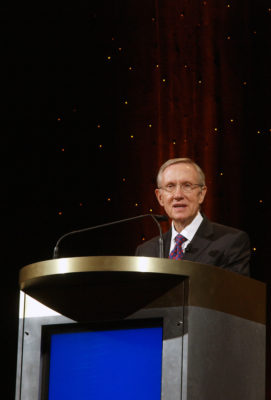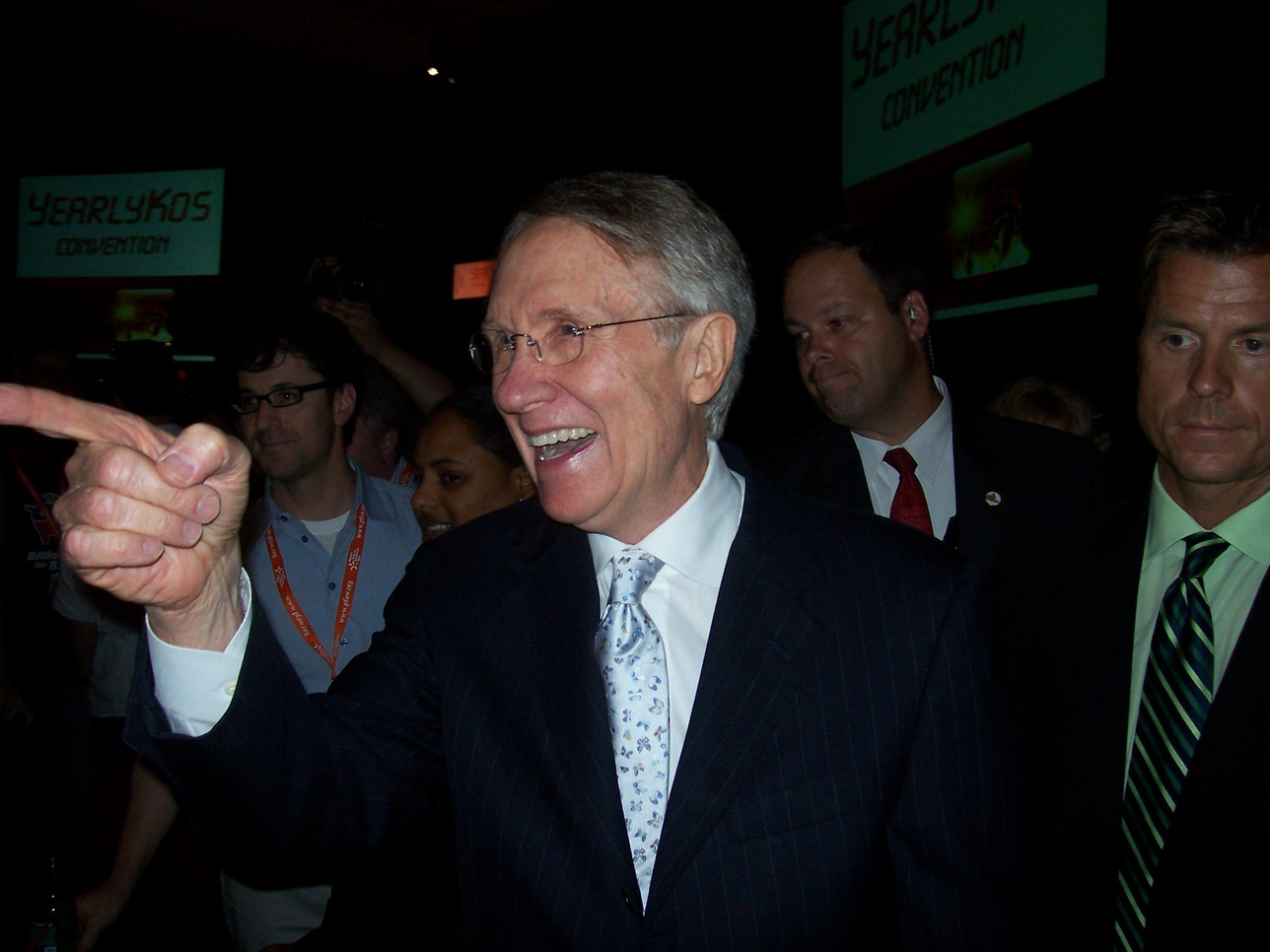In 1974, Nevada Lieutenant Governor Harry Reid lost a close race for the United States Senate by less than seven hundred votes to Republican Paul Laxalt, in what was one of the few big losses for the Democratic Party that year. Democrats would go on to lose the Silver State’s other Senate seat just eight years later, with longtime Senator Howard Cannon losing to Las Vegas clothier Chic Hecht.
(Hecht was arguably the least distinguished member of the Republicans’ Class of 1982. He spoke with a lisp and was famous for saying he would not let Nevada become a “nuclear suppository.” He did not win reelection.)
Laxalt secured a second term in 1980, but as the Reagan years began to draw to a close, he opted to retire rather than face the voters again.
Seeing an opening, Reid (by then a congressman) jumped in and ran for the seat he had narrowly lost twelve years prior. I met him at a $1,000 a head fundraiser at Averell and Pamela Harriman’s Georgetown mansion. Washington Senate candidate Brock Adams didn’t want me to cover his event. An amused Janet Howard, Mrs. Harriman’s top aide, suggested I come to the Reid event to see how Democrats were evening the playing field in the 1986 battle for Senate control.

Harry Reid came from a hardscrabble background. His mother did washing for local brothels. His dad was a miner who eventually took his own life. Both drank.
Harry’s first ticket out was as a boxer. Yet, here he was, standing between the Degas and the Renoir and talking about working Americans.
He brought it off, too, in a soft voice that conveyed intensity.
Harry Reid would serve thirty years in the Senate. His biggest achievement for his state was arguably killing the U.S. Department of Energy’s plans to use Yucca Mountain as a repository for “spent” but highly radioactive fuel rods from the nation’s nuclear power plants — which he did almost single-handedly.
He did so much more, serving his last ten years as Senate Democratic Leader while building a formidable political machine at home in Nevada.
Reid was a workhorse, not a showhorse. He spurned the Washington, D.C. party circuit and left the talking to Chuck Schumer, who would succeed him as leader.
Behind the scenes, he worked hard.
Reid was the first colleague to suggest that restless freshman Illinois Senator Barack Obama run for president in 2008. Obama was memorably surprised returning from a very brief meeting with the leader.
He was instrumental in securing passage of Obama’s American Recovery and Reinvestment Act, albeit with private irritation that the new President made too many concessions in futile bid for more Republican support.
He helped rescue the Patient Protection and Affordable Care Act from the ineptitude of Senate Finance Committee Chairman Max Baucus, who had let Senate Republicans play him.
Nobody played Harry Reid. Knowing that the Democratic majority would be threatened in the 2014 midterms (and sure enough, Republicans picked up enough seats to gain control that year amid low turnout), Reid brought his caucus together and engineered a rules change to exempt Cabinet and judicial nominees from the collection of blocking tactics known as the filibuster.

Reid was an improbable greenie.
He held onto support from miners in Elko, but blocked utilities’ bid to build four coal-fired power plants in mountains of eastern Nevada.
With a keen appreciation for his state’s natural beauty — Nevada is much more than Las Vegas and desert — he instigated the creation of Great Basin National Park. He also acted to keep clear the waters of Lake Tahoe.
Conserving public lands was a passion of Reid’s. When he was first elected, Nevada had 70,000 acres of protected wildlands. The total is now more than four million, including the Red Rock Canyon Natural Area just outside Vegas.
In the public lands act that was his valedictory achievement, Reid (and Senator Murray) found room for additions to our Alpine Lakes Wilderness and Wild & Scenic River designation for the Middle Fork-Snoqualmie River.

Reid became a friend and ally of Seattle businessman Tom Campion in saving the Arctic. An accident with exercising equipment left Reid mostly blind in one eye, and he found himself battling cancer not long after retiring from the Senate.
He stayed active behind the scenes, helping Democrats flip a Senate seat and capture the governorship in 2018. Biden eked out a 20,000 vote win in 2020.
The Campions became such fans that they named their family dog “Harry Reid.” The real Harry was charmed.
Just before his passing, Barack Obama penned Reid a letter.
Its message: I would not have become President without you.
An exaggeration? I think not.

